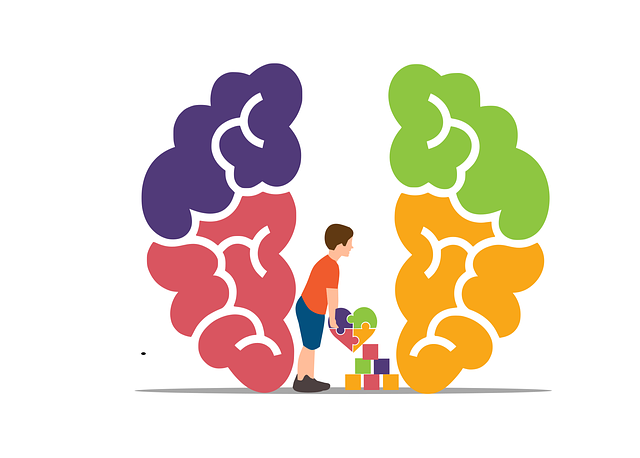In Denver, the digital era's pressures compound existing challenges for adolescents, potentially leading to increased stress and mental health issues that can trigger substance abuse. The city's vibrant culture, peer influence, and limited access to specialized therapy services exacerbate these risks. Building resilience and empathy is key to mitigation. Through open dialogue, community programs, and peer mentoring, Denver communities can empower teens with healthier coping strategies, reducing substance abuse risks. Supportive environments at home and school, evidence-based therapy like CBT, and community outreach programs are vital for effective risk reduction. Denver Adolescent and Teen Therapy initiatives highlight the power of community engagement in tackling addiction among youth.
In Denver, addressing substance abuse among adolescents and teens is paramount. This article explores comprehensive risk reduction strategies, focusing on understanding the unique challenges faced by young individuals in the city. We delve into creating supportive environments at home and school, evidence-based therapy approaches tailored for effective risk mitigation, and the crucial role of community engagement in fostering long-term success. Discover how Denver adolescent and teen therapy programs are revolutionizing care.
- Understanding Substance Abuse Risks Among Adolescents and Teens in Denver
- Creating a Supportive Environment at Home and School
- Evidence-Based Therapy Approaches for Risk Reduction
- Community Engagement and Access to Resources for Long-Term Success
Understanding Substance Abuse Risks Among Adolescents and Teens in Denver

In Denver, understanding substance abuse risks among adolescents and teens involves recognizing unique challenges they face in today’s digital era. The bustling metropolis, with its vibrant culture, may inadvertently contribute to elevated stress levels and mental health concerns, which can be precipitating factors for substance abuse. Many teens struggle with the pressure to fit in, peer influence, and the lack of accessible Denver adolescent and teen therapy services tailored to their needs. Building resilience and empathy becomes crucial in mitigating these risks.
Mental illness stigma reduction efforts play a significant role in encouraging adolescents and teens to seek help early on. By fostering an environment that promotes open dialogue about mental health and substance abuse, Denver communities can support young individuals in developing coping strategies. Empathy-building strategies, such as peer mentoring and supportive community programs, can further strengthen their ability to navigate challenges and make healthier choices, thereby reducing the risk of substance abuse among teens and adolescents in Denver.
Creating a Supportive Environment at Home and School

Creating a supportive environment at home and school is a crucial component of risk reduction strategies for substance abuse, especially among adolescents. In Denver, adolescent and teen therapy programs have recognized the importance of fostering an atmosphere that promotes open communication and healthy coping mechanisms. By integrating social skills training and mental health education programs designed to enhance emotional intelligence, these institutions are equipping young individuals with essential tools to navigate challenging situations.
At home, parents can play a pivotal role by establishing clear rules and boundaries while encouraging open dialogue about the pressures of peer influence and the consequences of substance abuse. Schools, too, have a responsibility to create safe spaces where students feel comfortable discussing their emotional well-being and seeking help without fear of stigma. Through collaborative efforts between educators, counselors, and parents, a cohesive support system can be built to deter substance abuse and foster positive development in young minds.
Evidence-Based Therapy Approaches for Risk Reduction

Evidence-based therapy approaches play a pivotal role in effective risk reduction strategies for substance abuse among adolescents and teens. Denver Adolescent and Teen Therapy centers often employ cognitive-behavioral therapy (CBT), proven to be highly successful in identifying and modifying negative thinking patterns and behaviors associated with substance misuse. This approach equips individuals with valuable coping skills, enhances decision-making abilities, and promotes healthier alternatives to drug or alcohol use.
Additionally, compassion cultivation practices and communication strategies are integrated into the therapeutic process. These methods foster empathy, understanding, and self-compassion, addressing underlying emotional vulnerabilities that may contribute to substance abuse. Community outreach program implementation further strengthens these efforts by providing a supportive network outside of therapy settings, encouraging open dialogue, and promoting healthy lifestyle choices within peer groups.
Community Engagement and Access to Resources for Long-Term Success

Community engagement plays a pivotal role in mitigating substance abuse among adolescents and teens. By fostering strong connections between individuals, families, and local support systems, Denver Adolescent and Teen Therapy initiatives can create a robust safety net. This approach involves organizing community-based programs, such as mental health policy analysis and advocacy groups, that focus on early intervention and prevention strategies. These efforts ensure that young people have access to resources and guidance, promoting healthier coping mechanisms and reducing the risk of substance abuse.
Moreover, integrating stress management workshops and organizational initiatives into community engagement can significantly contribute to long-term success. Teaching teens effective stress management techniques empowers them with tools to navigate challenging situations without resorting to substances. Emotional healing processes, supported by these comprehensive strategies, help individuals build resilience, enhancing their ability to overcome addiction and thrive in a substance-free environment.
Addressing substance abuse among adolescents and teens in Denver requires a multi-faceted approach. By creating supportive environments at home and school, implementing evidence-based therapy approaches, and fostering community engagement, we can significantly reduce risk factors. Access to specialized Denver adolescent and teen therapy, along with community resources, is crucial for long-term success. Through collaborative efforts, we can ensure a healthier future for our youth.














